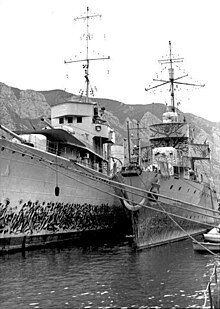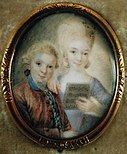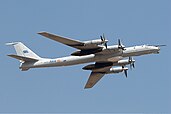
Back Portaal:Geskiedenis Afrikaans Portal:Gschicht ALS በር:ታሪክ Amharic Ingang:Stǣr ANG بوابة:التاريخ Arabic قيسارية:تاريخ ARY بوابة:التاريخ ARZ Портал:Тарих AV Tuveli:Izvopa AVK Portal:Tarix Azerbaijani
The History Portal
History (derived from Ancient Greek ἱστορία (historía) 'inquiry; knowledge acquired by investigation') is the systematic study and documentation of the human past.
The period of events before the invention of writing systems is considered prehistory. "History" is an umbrella term comprising past events as well as the memory, discovery, collection, organization, presentation, and interpretation of these events. Historians seek knowledge of the past using historical sources such as written documents, oral accounts or traditional oral histories, art and material artifacts, and ecological markers. History is incomplete and still has debatable mysteries.
History is an academic discipline which uses a narrative to describe, examine, question, and analyze past events, and investigate their patterns of cause and effect. Historians debate which narrative best explains an event, as well as the significance of different causes and effects. Historians debate the nature of history as an end in itself, and its usefulness in giving perspective on the problems of the present.
Stories common to a particular culture, but not supported by external sources (such as the tales surrounding King Arthur), are usually classified as cultural heritage or legends. History differs from myth in that it is supported by verifiable evidence. However, ancient cultural influences have helped create variant interpretations of the nature of history, which have evolved over the centuries and continue to change today. The modern study of history is wide-ranging, and includes the study of specific regions and certain topical or thematic elements of historical investigation. History is taught as a part of primary and secondary education, and the academic study of history is a major discipline in universities.
Herodotus, a 5th-century BC Greek historian, is often considered the "father of history", as one of the first historians in the Western tradition, though he has been criticized as the "father of lies". Along with his contemporary Thucydides, he helped form the foundations for the modern study of past events and societies. Their works continue to be read today, and the gap between the culture-focused Herodotus and the military-focused Thucydides remains a point of contention or approach in modern historical writing. In East Asia, a state chronicle, the Spring and Autumn Annals, was reputed to date from as early as 722 BC, though only 2nd-century BC texts have survived. The title "father of history" has also been attributed to Sima Qian and Ibn Khaldun in their respective societies. (Full article...)
Featured picture
Did you know (auto generated)

- ... that despite his distinguished family history, musicologist Yuri Shcherbinin told friends that "what matters most is what you are, not who your ancestors were"?
- ... that at the time, the Fountain Fire was the third-most destructive wildfire in California's recorded history?
- ... that Fernando Cajías, who belongs to the first generation of professional historians in Bolivia, composed part of history academia's "Mirista wing"?
- ... that Brassey's, "said to be the oldest established name in defence publishing", traces its history back to The Naval Annual in 1886?
- ... that the persecution of homosexuals in Nazi Germany is considered to be the most severe persecution of LGBT people in history?
- ... that officials said this year's Louisiana wildfire season includes the largest wildfire in the state's history?
Albert Einstein (/ˈaɪnstaɪn/ EYEN-styne; German: [ˈalbɛɐt ˈʔaɪnʃtaɪn] ; 14 March 1879 – 18 April 1955) was a German-born theoretical physicist who is widely held as one of the most influential scientists. Best known for developing the theory of relativity, Einstein also made important contributions to quantum mechanics. His mass–energy equivalence formula E = mc2, which arises from relativity theory, has been called "the world's most famous equation". He received the 1921 Nobel Prize in Physics "for his services to theoretical physics, and especially for his discovery of the law of the photoelectric effect", a pivotal step in the development of quantum theory. His intellectual achievements and originality have made the word Einstein broadly synonymous with genius.
Born in the German Empire, Einstein moved to Switzerland in 1895, forsaking his German citizenship (as a subject of the Kingdom of Württemberg) the following year. In 1897, at the age of seventeen, he enrolled in the mathematics and physics teaching diploma program at the Swiss federal polytechnic school in Zürich, graduating in 1900. In 1901, he acquired Swiss citizenship, which he kept for the rest of his life. In 1903, he secured a permanent position at the Swiss Patent Office in Bern. In 1905, he submitted a successful PhD dissertation to the University of Zurich. In 1914, he moved to Berlin in order to join the Prussian Academy of Sciences and the Humboldt University of Berlin. In 1917, he became director of the Kaiser Wilhelm Institute for Physics; he also became a German citizen again, this time as a subject of the Kingdom of Prussia. In 1933, while he was visiting the United States, Adolf Hitler came to power in Germany. Horrified by the Nazi "war of extermination" against his fellow Jews, Einstein decided to remain in the US, and was granted American citizenship in 1940. On the eve of World War II, he endorsed a letter to President Franklin D. Roosevelt alerting him to the potential German nuclear weapons program and recommended that the US begin similar research. Einstein supported the Allies but generally viewed the idea of nuclear weapons with great dismay. (Full article...)On this day
- 1763 – The Mozart family grand tour began, presenting child prodigies Maria Anna and Wolfgang (both pictured) in Western Europe.
- 1877 – The inaugural Wimbledon Championship, the world's oldest tennis tournament, began in London.
- 1896 – Politician William Jennings Bryan made his Cross of Gold speech advocating bimetallism, considered one of the greatest political speeches in American history.
- 1958 – An earthquake struck Lituya Bay, Alaska; the subsequent megatsunami, the largest in modern times, reached an elevation of 1,720 ft (524 m).
- 1962 – In a seminal moment for pop art, Andy Warhol's Campbell's Soup Cans exhibition opened at the Ferus Gallery in Los Angeles.
- Ann Radcliffe (b. 1764)
- Anna Morandi Manzolini (d. 1774)
- Courtney Love (b. 1964)
- Fernando de la Rúa (d. 2019)
Selected quote
"Strike an enemy once and for all. Let him cease to exist as a tribe or he will live to fly in your throat again".
— Shaka, 19th century Zulu king
Related portals
More Did you know...
- ... that the Soviet Tupolev Tu-142 (pictured) maritime patrol aircraft was developed in response to the American UGM-27 Polaris submarine-launched ballistic missile?
- ... that Harry Powers said that watching his victims die was more fun than a brothel?
- ... that the effort put forth by the subject of Miró's 1937 Naked woman climbing a staircase and her heavy limbs are thought to reflect the tragedy of the Spanish Civil War?
- ... that 49% of German military losses happened in the last 10 months of the Second World War in Europe?
- ... that Thomas Edison lost a fortune in his ore-milling company, but "had a hell of a good time spending it"?
- ... that American McCaull Comic Opera Company actress May Yohé, once the owner of the Hope Diamond, died poor?
- ... that Egyptian political cartoonist Ahmad Nady took part in the 2011 Egyptian revolution, drawing cartoons while he demonstrated?
- ... that finds unearthed at the Israelite Tower in Jerusalem's Jewish Quarter attest to the Babylonian sack of the city in 586 BCE?
Topics
Categories

History • By period • By region • By topic • By ethnic group • Historiography • Archaeology • Books • Maps • Images • Magazines • Organizations • Fictional • Museums • Pseudohistory • Stubs • Timelines • Chronology • People • Wikipedia historians
WikiProjects
![]() WikiProject History •
Ancient Near East • Australian History • Classical Greece and Rome • Dacia • Former countries • History of Canada • Chinese history • European history • Heraldry and vexillology • Indian history • Jewish history • Medieval Scotland • Mesoamerica • Military history • Middle Ages • History of Science
WikiProject History •
Ancient Near East • Australian History • Classical Greece and Rome • Dacia • Former countries • History of Canada • Chinese history • European history • Heraldry and vexillology • Indian history • Jewish history • Medieval Scotland • Mesoamerica • Military history • Middle Ages • History of Science
WikiProject Time • Days of the Year • Years
WikiProject Biography • Composers • Political figures • Saints • United States Presidents
Things you can do
 |
Here are some tasks awaiting attention:
|
Associated Wikimedia
The following Wikimedia Foundation sister projects provide more on this subject:
-
Commons
Free media repository -
Wikibooks
Free textbooks and manuals -
Wikidata
Free knowledge base -
Wikinews
Free-content news -
Wikiquote
Collection of quotations -
Wikisource
Free-content library -
Wikiversity
Free learning tools -
Wiktionary
Dictionary and thesaurus
© MMXXIII Rich X Search. We shall prevail. All rights reserved. Rich X Search






















































